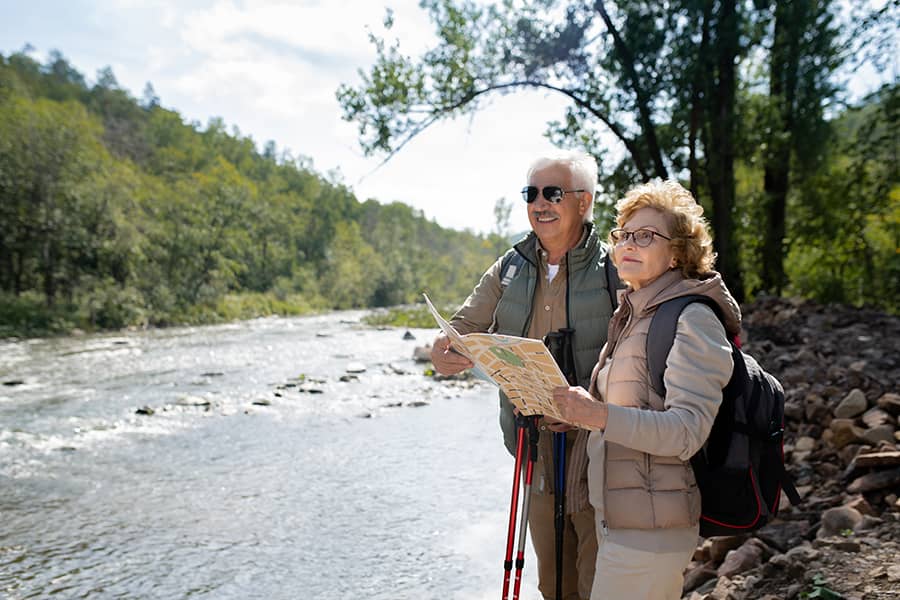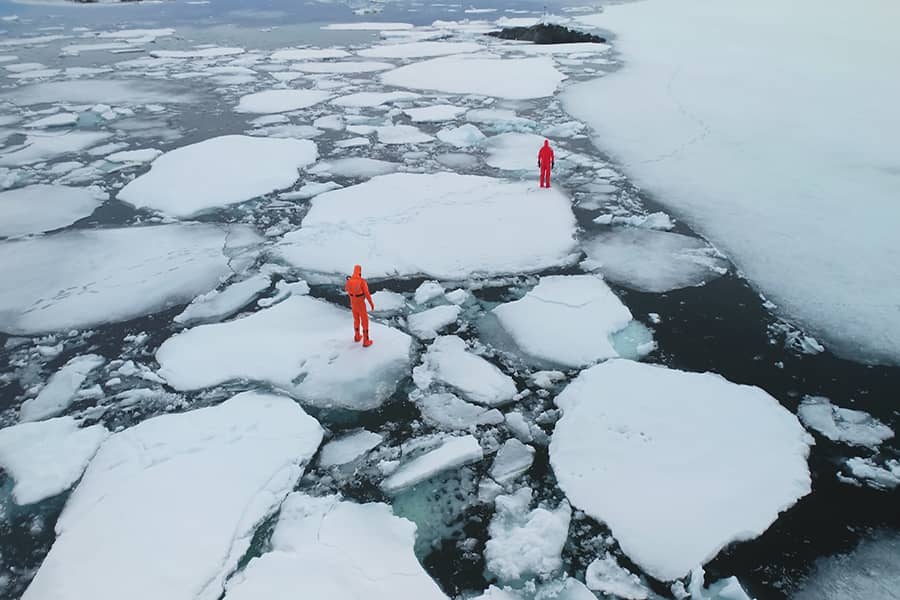Recent Study: Traveling may slow down the aging process and enhance both physical and mental well-being.

The Link Between Travel and Aging
Traveling offers more than just a change of scenery; it serves as a powerful catalyst for rejuvenation and vitality. Engaging with diverse cultures stimulates the brain, promoting cognitive flexibility and adaptability—traits that are vital in maintaining mental acuity as we age. New environments challenge our senses and encourage physical activity, whether it’s hiking an ancient trail or exploring the bustling streets of a foreign city. This active engagement not only keeps us physically fit but also enhances our emotional well-being by providing opportunities for joy and connection.
Moreover, travel can create lasting memories that bolster happiness and life satisfaction. These experiences become part of a rich tapestry we can draw from in later years, fueling nostalgia and reinforcing our sense of identity. Studies have shown that people who travel often report lower levels of stress, allowing them to combat aging-related issues more effectively. By making travel an integral part of our lives, we may find ourselves not only adding years to our lives but life to those years—a compelling reminder that adventure is truly timeless.
Benefits of Travel on Mental Health
Traveling serves as a powerful antidote to the daily grind and the chronic stress that often plagues our lives. Stepping away from routine imbues us with fresh perspectives, allowing for new experiences that challenge our mental boundaries. In unfamiliar settings, we stimulate cognitive function and creativity, as navigating different cultures and environments sharpens problem-solving skills and adaptability. This engagement can lead to increased mental resilience—an invaluable trait in both personal and professional realms.
Beyond the boosts in cognitive functioning, travel also fosters meaningful connections. Shared experiences with friends or even fellow travelers can deepen relationships and cultivate empathy, promoting a sense of belonging in an increasingly disconnected world. Engaging meaningfully with diverse communities enhances our emotional intelligence, helping to combat feelings of isolation or anxiety prevalent in today’s society. Ultimately, these enriching encounters not only enhance mood but contribute significantly to a more fulfilled sense of self—a vital component for maintaining psychological well-being over time.
Physical Health Improvements Through Exploration
Exploring new environments can unleash a plethora of physical health benefits that often go overlooked. When wandering through unfamiliar landscapes, the body naturally engages in diverse forms of movement—hiking up a scenic hill, dancing at a local festival, or simply navigating bustling markets—all contributing to enhanced cardiovascular fitness and muscle strength. This variety in physical activity breaks the monotony of routine workouts, promoting greater motivation to stay active while simultaneously boosting endurance and balance.
Moreover, travel exposes individuals to different cultures and cuisines, sparking curiosity about nutrition and holistic health practices from around the globe. Trying exotic foods not only tantalizes the taste buds but also encourages a more mindful relationship with eating habits. Engaging with locals often leads to discovering medicinal plants or traditional exercise routines that can rejuvenate one’s lifestyle back home. In these ways, exploration becomes more than just an escape; it transforms into an enriching journey toward overall wellness by fostering both physical vitality and cultural understanding that invigorates the soul.
Social Connections Fostered by Traveling
Traveling opens up a world of social connections that can profoundly influence our mental and emotional well-being. When we step out of our familiar environments, we are often thrust into experiences that push us to interact with diverse cultures and individuals. This interaction fosters empathy and understanding, enabling us to forge bonds that transcend geographical boundaries. The fleeting yet meaningful conversations shared over meals in bustling marketplaces, or the laughter exchanged during group excursions create memories that linger long after the journey has ended.
Moreover, these connections can have lasting effects on our lives back home. Friendships formed while traveling not only expand our social networks but also provide a rich tapestry of perspectives that enhance personal growth. Engaging with others who share similar interests or come from vastly different backgrounds promotes cognitive flexibility and adaptability—traits linked to younger-looking brains. Each new relationship nurtured on the road serves as a reminder of the world’s interconnectedness, reinforcing the idea that it’s never too late to foster new friendships and enrich one’s life through exploration.
Stress Reduction and Relaxation While Traveling
Taking a step away from our routines while traveling can work wonders for stress reduction and relaxation. When immersed in new environments—whether it’s the sound of waves at a beach or the rustle of leaves in a forest—our minds naturally shift focus, allowing our bodies to release tension. The simple act of changing scenery often provides perspective that promotes mindfulness, making it easier to disconnect from daily pressures. Instead of fixating on deadlines or to-do lists, travelers often find themselves absorbed in the moment, enhancing mental clarity and opening the door to rejuvenation.
Moreover, travel creates opportunities for authentic connections with others and oneself. Engaging with different cultures fosters empathy and enriches our emotional landscapes, which can be incredibly fulfilling. Activities like hiking through picturesque trails or practicing yoga under an open sky not only invigorate the body but also calm the mind—a beautiful interplay that reinforces mental well-being. Ultimately, embracing these moments—not merely as an escape but as avenues for personal growth—can catalyze profound shifts towards a more balanced life long after returning home.
Cultural Experiences Promote Cognitive Functioning
Engaging with diverse cultures not only enriches the travel experience but also significantly stimulates cognitive functioning. When individuals immerse themselves in unfamiliar environments, their brains are challenged to adapt to new languages, customs, and social interactions. This constant mental engagement fosters neuroplasticity—the brain’s ability to form new neural connections—which is essential for maintaining cognitive health as we age. Think of it as a workout for the mind; just as physical exercise reinforces muscle strength, cultural immersion strengthens our mental agility.
Future Research Directions in Travel Studies
As the discovery of travel’s unique effects on aging and well-being continues to unfold, future research directions in travel studies could delve deeper into technology’s role in enhancing or reshaping travel experiences. Virtual reality (VR) simulations and augmented reality (AR) tools hold immense potential for those unable to physically travel due to health, financial constraints, or other limitations. Researchers might investigate how immersive virtual environments can elicit similar psychological benefits as actual trips, thereby opening doors to cross-generational studies that focus on both younger populations and older adults.
Furthermore, as global mobility evolves, an interdisciplinary approach combining insights from sociology, psychology, and environmental science may illuminate the lived experiences of travelers. Understanding how different cultural attitudes towards exploration impact well-being could lead to customized recommendations within diverse communities. Studies could also explore sustainable travel practices that prioritize mental health benefits while minimizing ecological footprints—paving the way for holistic tourism models that enrich individuals’ lives without compromising the planet’s health. Ultimately, these expansive avenues promise not just a better grasp of the relationship between travel and aging but also a more profound appreciation for its nuances across cultures and demographics.
Conclusion: Embrace Travel for a Vibrant Life
In a world that often emphasizes the grind of daily life, embracing travel can be a refreshing antidote—a vibrant catalyst for rejuvenation. It’s not just about the places we visit but the experiences we collect along the way that infuse our lives with a sense of wonder. Consider each journey as an opportunity to break free from routines and rediscover parts of ourselves that may have been tucked away beneath layers of responsibility. These adventures provide an outlet for creativity, sparking new ideas and perspectives that enrich both our personal and professional lives.
Moreover, travel fosters deep connections with others—from locals who share their culture to fellow travelers who become friends for life. The bonds forged in distant cities often carry lessons about empathy, resilience, and gratitude that enhance our emotional intelligence and well-being long after we’ve returned home. Instead of viewing travel merely as a luxury or escape, let’s embrace it as essential nourishment for the spirit—a timely reminder that adventure awaits beyond the horizons we know. So pack your bags; every journey has the potential to transform you psychologically and physiologically, reminding us all that youth is truly a state of mind cultivated through exploration and experience.
Recent Posts
-
Books That Will Spark Your Passion for Reading
September 22, 2024



